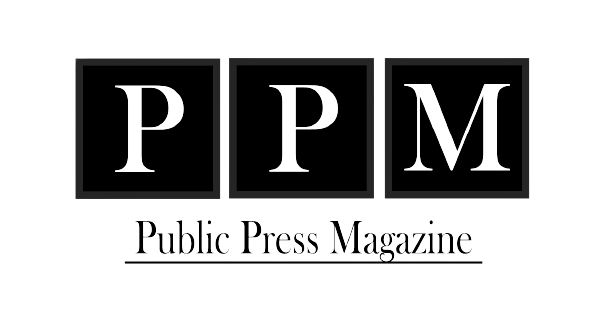Table of Contents

Have you ever considered how finding the right career path can affect your life? Finding the perfect career path can be exciting and overwhelming, impacting various aspects of your life. While taking a simple, high-paying job at first is tempting, it’s essential to consider elements like your lifestyle, personality, and interface. These variables are critical in deciding your career fulfillment and general joy in the long run. According to a 2020 Gallup study, only 36% of the US workforce felt effectively engaged at work, highlighting the significance of finding the right careers. Whether you are a recent college graduate or contemplating a career change, making informed choices can affect your sense of accomplishment and well-being.
Best Ways to Finding the Right Career in 2024
1. Take a Career Test:
Choosing the right career is like solving a puzzle. It’s about understanding various aspects of yourself, such as your personality, strengths, interests, and lifestyle preferences. This process of self-reflection, though challenging, is crucial. It’s the key to unlocking your potential and finding a career that aligns with your unique skills and interests. Career tests can be valuable in this journey. They objectively view your abilities and interests and guide you toward more informed career decisions.
Career tests are not just tools; they are your guides on the journey of self-discovery. They help you sort through all the data and reveal more about yourself. Sometimes, our thoughts and sentiments can cloud our judgment, making it difficult to see what we must do. These tests provide a more objective view of ourselves, empowering us to make better career decisions.
These tests look at distinctive parts of who you are, like how well you do certain errands, how you think, and what kind of identity you have. They utilize this data to determine which occupations fit you well and which work situations you might flourish in. It’s like having a direct to assist you in navigating the world of work and discovering the correct path.
2. Identify your main aspirations:
Consider more than the money you’ll make when deciding what work you need. Other factors are vital as well.
For example, a few jobs might be highly regarded, like being a teacher, though they do not pay a lot. Others, such as attorneys or specialists, offer high pay but often demand long hours or unconventional schedules. And then there are jobs like beginning your own business, which can be genuinely energizing and give you a lot of control, but they might not continuously bring in a steady wage.
Rather than just considering money, think about what you genuinely care about in a work. Do you need work that gives you some opportunity and adaptability? Do you need work that challenges you and enables you to be inventive? Selecting a job that matches what you need out of your career is imperative since that can make a big difference in how upbeat and fulfilled you will be in the long run.
3. Kickstart Networking:
Sometimes, we must realize how imperative networking is when seeking a job. We might depend more on things like looking for occupations online or looking at advertisements. But connecting with people who work in the industries we’re interested in can be helpful. Once you meet people from distinctive foundations and employments, you hear about many unique opportunities and learn modern things. Networking isn’t just about finding work; it’s also about learning more about diverse careers and figuring out if they suit you just by talking to others.

4. Move Forward:
Moving forward means doing something instead of considering it. Sometimes, when we’re unsure what to do with our lives, we might spend a lot of time considering all the alternatives but not doing anything to alter our circumstances. Analysts call this “analysis paralysis,” which suggests being stuck in a cycle of overthinking without taking action.
Just considering distinctive career choices can only get us so far. To discover our career development, we have to take steps to make it happen. For example, if you’re torn between two career choices, like finance and writing/graphic design, you’ll start by choosing one that’s less demanding to access. You have a finance degree but are curious about composing a realistic plan. You’ll search for a job at a monetary firm and offer to assist the marketing group with their substance or realistic plan needs. This way, you’re not just getting your foot in the entryway; you’re embarking on an exciting journey of exploration and self-discovery without gambling or financial loss.
Taking action is critical since it affects how we move forward and engage in real-life activities. Rather than just considering what we need to do, we’re taking action to investigate our alternatives and advance toward our objectives.
5. Take one step at a time:
“Take one step at a time” implies that rather than attempting to plan your whole career way all at once, you should focus on making little, sensible choices and activities that move you forward continuously.
Imagine you’re attempting to discover the perfect career, but there are so many choices that it feels overpowering. Rather than focusing on arranging your whole future, you’ll start by taking little steps in the direction you want to go.
For example, instead of stressing about where you will be in five or ten years, you can focus on finding a job that interests you. You can also try distinctive occupations to see what you appreciate and do not. It will help you understand what you like and do not like, which can assist you in making better choices in the future.
Taking one step at a time allows you to alter your plans as you go along. Life is unusual, and things may only go according to plan. But by focusing on the next step, you’ll adjust to changes and discover the right career path that works for you.
6. Do different Trial jobs:
“Doing trial jobs” means attempting distinctive employments sometime recently, committing to one forever. It’s like testing the waters to see if a work is an excellent fit for you.
Imagine you need to figure out what kind of work you want to do. You may have many choices, but must determine which is right for you. Rather than just picking one and trusting for the finest, you can attempt doing trial employment.
Trial jobs are brief positions where you work briefly to see if you like the work and if it fits you well. It’s challenging to find trial jobs, but it’s less demanding than you think.
In a TEDx Talk, Emma Rosen shared her involvement in attempting 25 diverse jobs when she turned 25. She tried various jobs, from more common ones like property development and inside plans to more interesting ones like working with police pooches and cultivating alpacas.
So, how do you get trial work? Rather than applying for jobs through customary job listings, you can reach out straightforwardly to businesses and tell them that you’re curious about attempting their job for a short time. You’ll introduce yourself and explain that you’re trying to figure out what you need to do along with your career development.
If the businesses you contact do not have the budget to contract you briefly, you’ll investigate other alternatives, like work shadowing, volunteering, internships, or part-time work. These opportunities can also provide you with a taste of diverse employment and assist you in choosing what you need to do in the long run.
7. Being curious:
Being curious means being interested in learning new things and investigating diverse possibilities. It’s like being enthusiastic to discover more about the world around you.
Imagine adding modern pieces to the world, like solving an enormous yearly puzzle. These pieces speak to new jobs and careers created by changes in innovation and society. For example, during the COVID-19 pandemic, when numerous individuals had to work from home, a new work title called “Head of Remote Work” was created to oversee this better working approach.
A few jobs, like development hackers, digital marketers, and virtual assistants, didn’t exist sometime in the 2000s. They were born out of the rise of the internet and technology.
So, being curious implies permitting yourself to explore diverse interfaces and activities. Try following your interest rather than focusing only on what you’re enthusiastic about. Please pay attention to the things that capture your interest, whether it’s a side interest, a book, or something you see online. These interfaces provide clues about what career is right for you.
8. Analyze your Strengths:
Analyzing your strengths implies considering what you’re great at and appreciating when considering what work you need to do. Sometimes, people take off their jobs not just because they need to pay better or because they have an awful boss but also because the work needs to coordinate with what they are great at or like to do.
It’s imperative to figure out what you’re great at because these skills can assist you in discovering a job that you will be cheerful with and that suits you well. Indeed, although abilities can be learned and improved over time, everybody has a few things at which they are superior.
For example, you’re genuinely excellent at talking to people, and you enjoy it, so work where you get to communicate with others a part can be a fantastic fit for you. Or you’re incredible at analyzing information and coming up with solutions, so work that includes problem-solving and technique may be a great match.

9. Try to work with a Career coach:
Keep hope if you’ve been stuck or disappointed in your current job. Career coaches can help people like you who want to reassess their career paths and make essential changes. These counselors offer guidance and support to assist you in exploring a more satisfying and productive life.
Fortunately, with the availability of the internet, you’ll interface with career coaches from any place in the world. Numerous coaches give reasonable resources on their websites, such as valuable checklists and quizzes, to assist you in brainstorming and arranging your career journey. By working with a career coach, you can gain essential experiences and methodologies to seek after a career that adjusts superior along with your interface and goals.
If there’s a field you’ve been curious about but have yet to explore thoroughly, consider signing up for courses or tutorials. Whether online or in-person, these learning opportunities can give you the information and abilities to dive deeper into your areas of interest. Through education and exploration, you will find modern interests and inspirations that lead to the right career.
10. Work on your brand:
Working on your branding implies forming a picture of yourself that you merely display to the world, particularly online, where potential employers can effortlessly discover you. Your brand is like your reputation, which can significantly affect your career opportunities.
Specific social media activities and behaviors, such as sharing controversial opinions or posting unprofessional content, can instantly disqualify you from a job and hurt your chances of getting enlisted, so it’s vital to avoid these mistakes. Instead, focus on activities that positively improve your brand.
For instance, if you’re fascinated by becoming a designer, you’ll share your experiences on industry patterns to establish yourself as a master within the field. Also, volunteering in significant organizations can illustrate your commitment to your chosen calling. Your brand should reflect your proficient character and what others can anticipate when working with you.
Final thoughts:
Picking the right career is something you do only once and after. Forget about it. It’s more like a journey that keeps advancing over time. Think of your job as something flexible and energetic. It’s not just about finding work; it’s about finding something that makes you upbeat and satisfied. And to do that, you simply. I should remain open-minded, learn from others, and keep moving. If you stay inquisitive, remain associated with individuals who matter, and keep making advances, you’ll discover the right career that brings you bliss and satisfaction.
ESL Essentials: A Comprehensive Handbook for Language Learners



